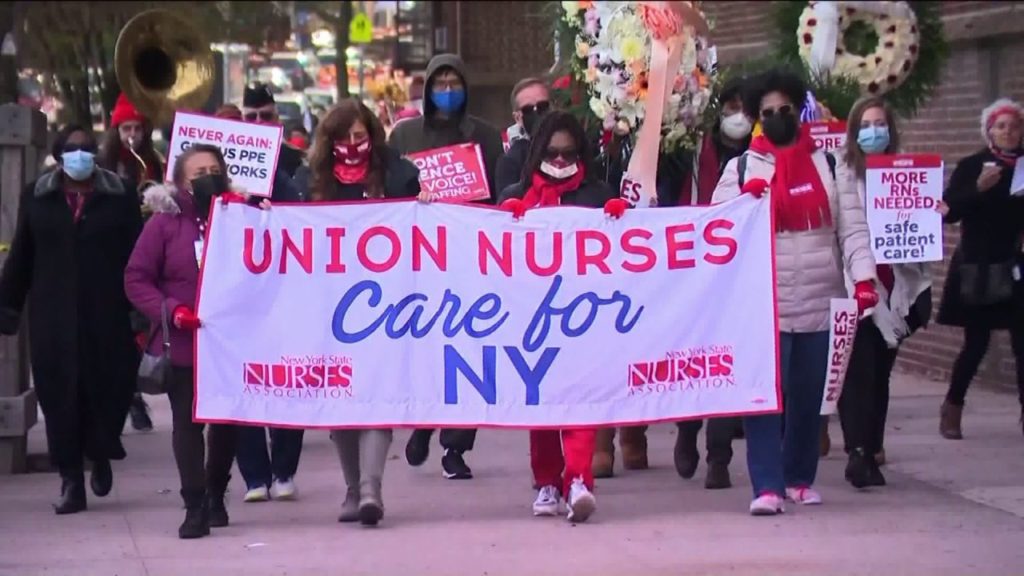Who Protects the Front Line Hospital Workers?

The only answer to the above question is their unions:
Health care workers say they have been bitterly disappointed by their employers’ and government agencies’ response to the pandemic. Dire staff shortages, inadequate and persistent supplies of protective equipment, limited testing for the virus and pressure to work even if they might be sick have left many workers turning to the unions as their only ally. The virus has claimed the lives of more than 3,300 health care workers nationwide, according to one count.
“We wouldn’t be alive today if we didn’t have the union,” said Elizabeth Lalasz, a Chicago public hospital nurse and steward for National Nurses United. The country’s largest union of registered nurses, representing more than 170,000 nationwide, National Nurses was among the first to criticize hospitals’ lack of preparation and call for more protective equipment, like N95 masks.
Despite the decades-long decline in the labor movement and the small numbers of unionized nurses, labor officials have seized on the pandemic fallout to organize new chapters and pursue contract talks for better conditions and benefits. National Nurses organized seven new bargaining units last year, compared to four in 2019. The S.E.I.U. also says it has seen an uptick in interest.
Nurses across the country from various unions have participated in dozens of strikes and protests. National Nurses held a “day of action” on Wednesday with demonstrations in more than a dozen states and Washington, D.C., as it starts negotiations at hospitals owned by big systems like HCA, Sutter Health and CommonSpirit Health.
It’s almost impossible to state how awful the hospital industry is to its own workers. Here in Rhode Island there are constant battles between the hospitals and the nurses and staff because the hospitals want to increase profits on the backs of the employees. These workers, like teachers, tend to have access to some public support due to their role as care workers. Who doesn’t like nurses? But because they are care workers, they are too often not really conceptualized as workers by the public. When was the last time the Times or Post wanted to take the temperature of the labor movement about something that wasn’t explicitly medical care related and talked to nurses instead of laborers or plumbers or carpenters?
In any case, no one is going to look after any worker–including you–except a union that is made up of you and your fellow workers. This is the only path. And even when that’s not strictly possible–say public sector workers in hard right states–that doesn’t mean you can’t form quasi-unions that do some of that work for you, as the United Campus Workers in Tennessee have demonstrated.


